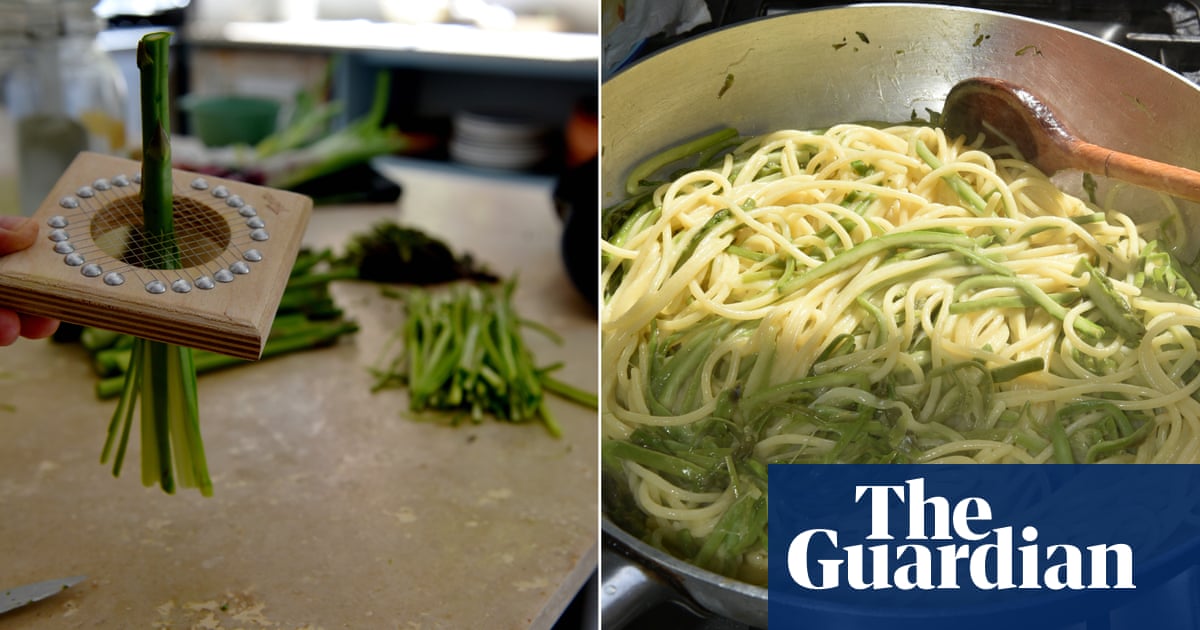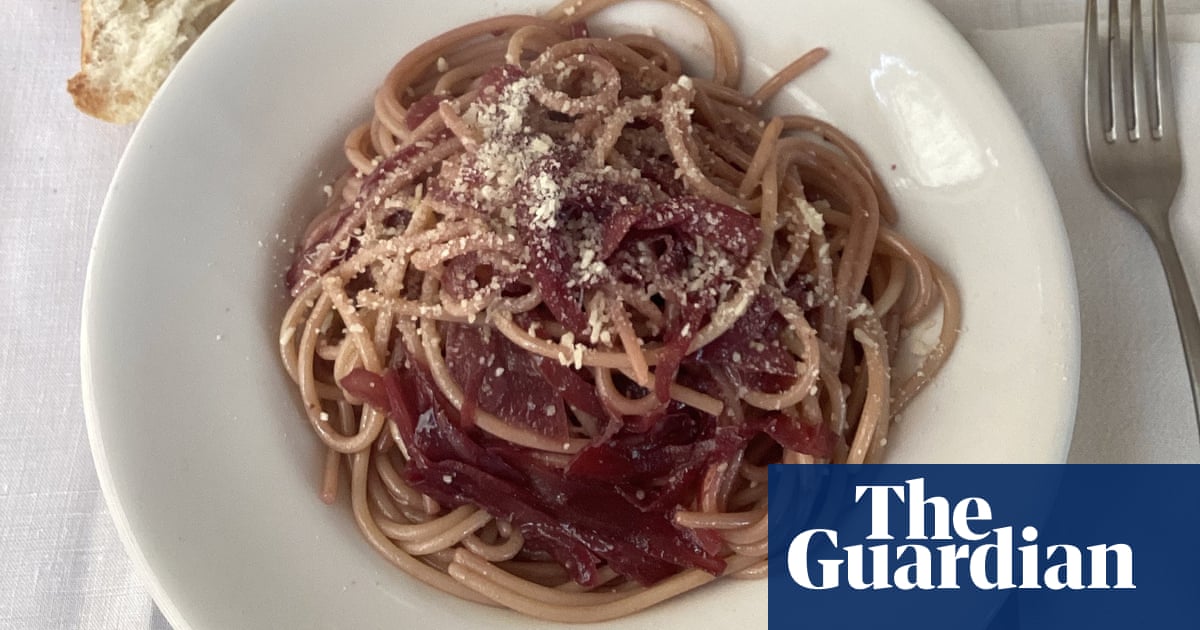
A10cm x 10cm wooden square with a large hole crossed with wire strings: it could be a tiny harp if it didn’t also have another set of 12 strings that cross the first, forming a mesh. Even so, it can be strummed with a long nail, the basic strum audible, if you get in close. Its actual purpose is for slicing puntarelle, the inner tubes of a variety of chicory called cicoria di catalogna or cicoria asparago (asparagus chicory). A late winter-to-early spring vegetable, succulent puntarelle, with its asparagus-like tips, or punte, is a popular salad in Lazio, so the basic, nifty and cheap square cutters (tagliapuntarelle) are common and easy to come by in hardware stores. And much as puntarelle migrates and thrives in soil all over the place, so do the cutters. Of course, you don’t need a cutter; a knife works just as well, only more slowly.
I also know several people who have made themselves a tagliapuntarelle, inspired by the larger cutters you sometimes see on market stalls: wooden boxes or frames strung with wire. Big or small, it is a fantastically satisfying tool, the crisp tubes of chicory cutting like butter into thin strips, or, if you want to keep the tips intact, puntarelle octopi! And it isn’t only for puntarelle: celery, courgettes and red pepper work on this tool, too; large vegetables turned into fat strings in two musical seconds.
Last week, while I know I can’t be the first to have done so, I did feel like a genius when I pushed asparagus through the mesh. I took off the tips first, so as not to offend them, but later wondered if they could go through, too. Asparagus stems are even more satisfying than puntarelle, because they sail through the wires and splay out like straight tentacles more or less the same proportions as spaghetti. Which is why, if the strips are wilted down in oil and given plenty of butter and lemon zest, they pair so well with spaghetti, for what is a two-tone joy and maybe my favourite recipe so far this year.
As always, the final stirring is crucial. It’s when the pasta, asparagus, starch, fat and pan juices combine and everything comes together, so don’t be afraid to swish the pan and stir vigorously. I would also like to apologise vigorously for going on about a kitchen gadget that most people won’t have. Which is why this column is also an advert for the various makers of this good-value object and, more importantly, calls to anyone capable of stringing wire or adapting instruments. I am also interested in commissioning a larger model, for both oversized courgettes and strumming practice.
Spaghetti with asparagus, butter and lemon
Serves 4
1 x large bunch asparagus (about 250g)
3-4 spring onions
4 tbsp olive oil
Salt
450g spaghetti
40g butter
Finely grated zest of 1 unwaxed lemon, plus 2 tbsp lemon juice
Trim the end of the asparagus as you prefer: snap off the woody ends or pare away the woody parts with a potato-peeler. Cut off the tips, then cut the spears lengthways into thin strings as close in size to spaghetti as you can. Trim the spring onions, then slice the bulbs into arcs and the green parts into short lengths.
You want to coordinate the cooking so that both the vegetables, which take about 10 minutes to soften, are ready at the same time as the spaghetti, which, depending on the brand, can take anything from seven to 11 minutes, so drop the spaghetti into salted boiling water accordingly.
While the pasta is cooking, warm the oil in a large frying pan set over a medium-low heat, soften the spring onions for a minute, then add the asparagus and a pinch of salt, and cook, stirring, until it wilts; carry over a ladleful of the pasta cooking water, all cloudy with starch, to help it along – once cooked, the asparagus should be soft with just a little juice. Stir in the butter, lemon juice and zest.
Drain the pasta (or lift it directly into the asparagus mix), then toss and swish vigorously for a minute or so, or until everything combines. Serve immediately, with grated parmesan for those who want it.












